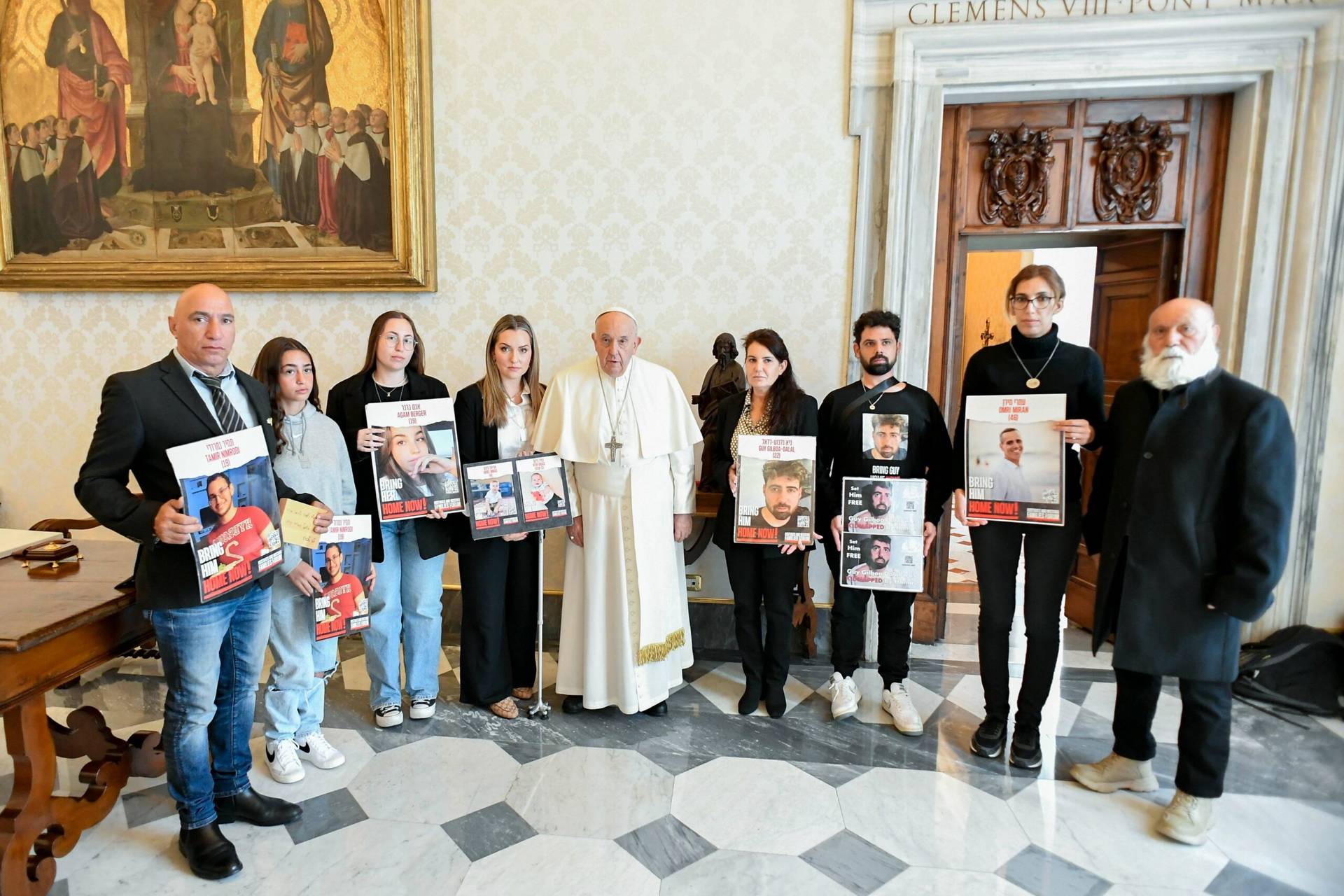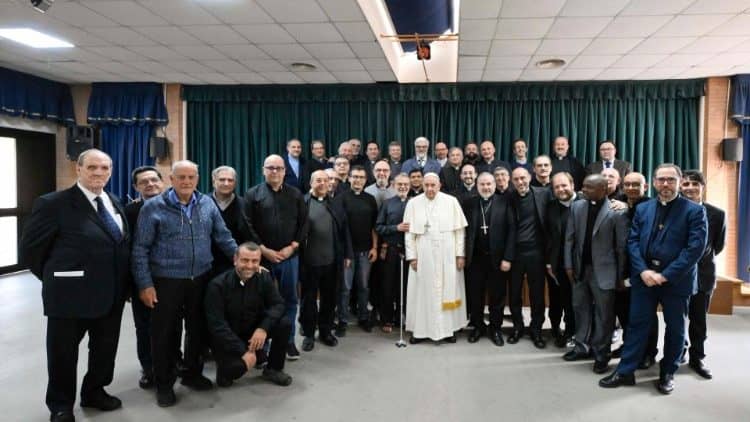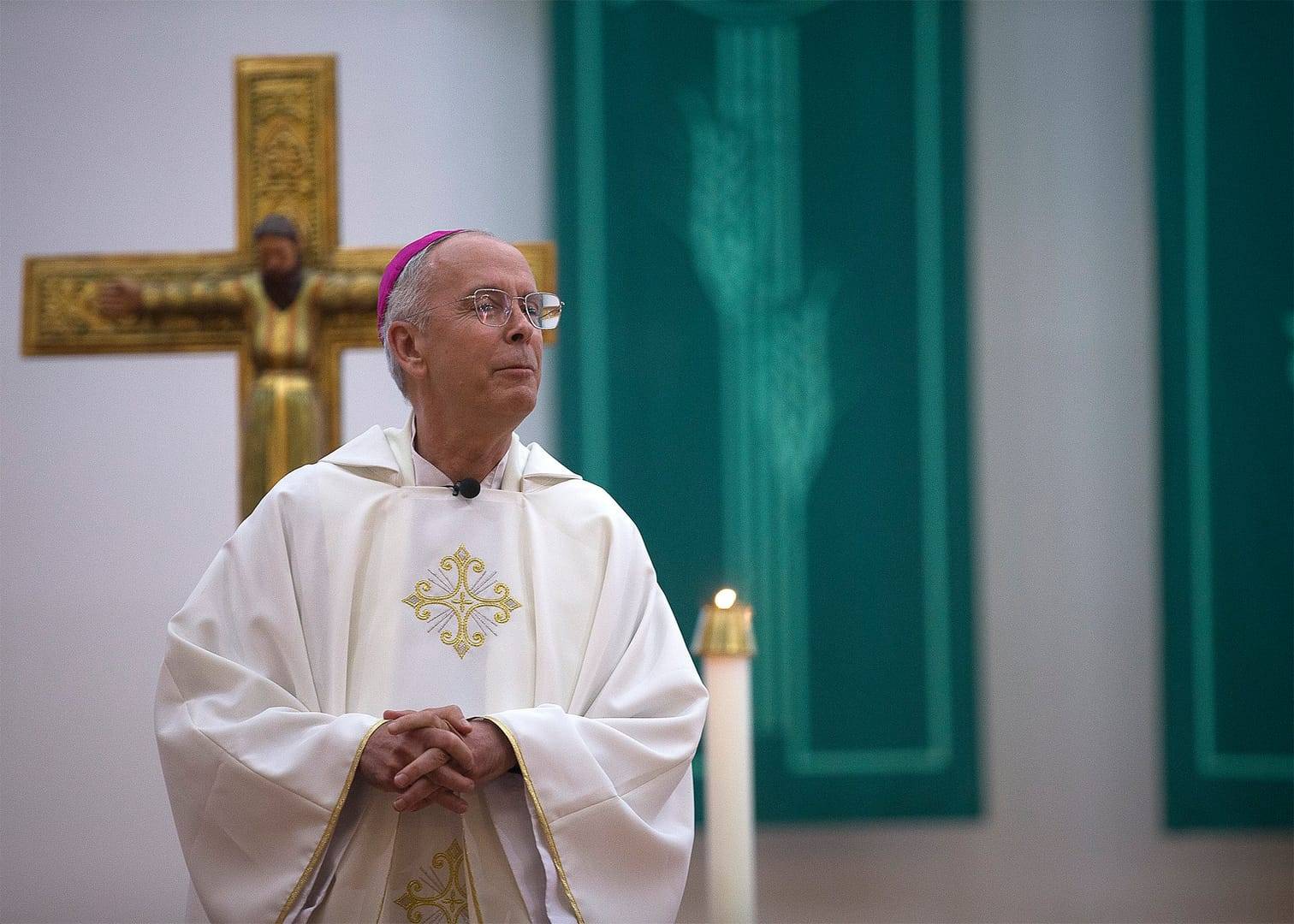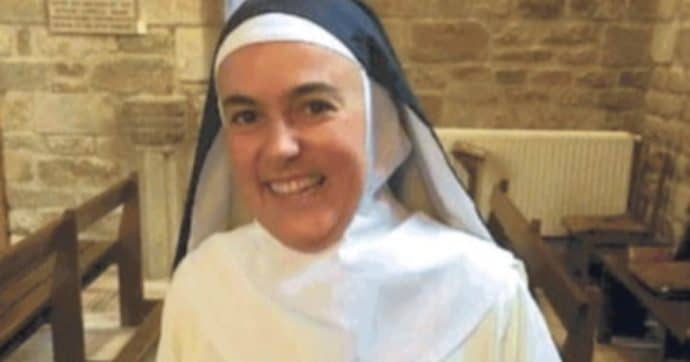ROME – Cardinal Arthur Roche, head of the Vatican’s liturgy department, has warned against the politicization of debates over different forms of the Mass and has stressed the church’s role as the one that makes and passes on tradition.
When it comes to the Traditional Latin Mass, “you touch this area, and everyone starts screaming. That should tell us something straight away,” Roche said, saying the often “hysterical” reactions to Pope Francis’s decision last year to tighten permissions for celebrating the pre-Vatican II liturgy are concerning.
Speaking to Crux, Roche referred to the liturgical reforms of the Second Vatican Council that introduced the so-called Novus Ordo Mass, saying, “the church has decreed at its highest level of legislation, which is a council, an ecumenical council, it has decreed that the liturgy should be reformed, reformed for the present day so that it actually speaks as a vehicle of evangelization.”
Regarding those who argue that the reforms rolled out by Pope Paul VI and Pope Francis are contrary to church tradition, Roche warned that “we’ve got to be very careful, because the church passes on the tradition, and it’s the church that makes the tradition, it’s not people in lobbies that create the tradition.”
“It’s important to get the fundamental things right first, before they’re politicized, and I think there’s a lot of politicizing of this issue, which is unworthy, really,” he said.
Roche, 72, has been prefect of the Vatican’s Dicastery for Divine Worship and the Discipline of the Sacraments since 2021. Prior to that, he served as secretary for the department since 2012.
He was one of 20 new cardinals to get a red hat from Pope Francis on Saturday, and he will be participating in this week’s two-day meeting of the world’s cardinals.
Part of his role as prefect of the Vatican’s liturgy office has been to navigate the backlash created by Pope Francis’s decision last year to tighten permissions for celebration of the pre-Vatican II Latin Mass, the use of which had been liberalized under his predecessor, Pope Benedict XVI.
According to last year’s papal decree Traditionis Custodes, priests who wish to celebrate the 1962 liturgy must now get permission from their bishop to continue doing so. Any priest ordained after the issuance of the new norms who wishes to celebrate the Traditional Latin Mass must submit a formal request to their bishop, and the bishop in turn will consult with the Vatican before granting permission.
Francis also charged bishops with determining specific times and locations where the Latin Mass can be celebrated, and prohibited the designation of new parishes exclusively dedicated to the Traditional Latin Mass.
In addition to the ongoing debate over access to the Traditional Latin Mass, Roche also spoke about his understanding of Pope Francis’s curial reform, his own role in implementing it, and his goals for this week’s meeting of cardinals.
Please read below for Crux’s interview with Cardinal Arthur Roche:
Crux: As the head of a dicastery, your nomination was expected, in a sense, but what does this appointment signify for you?
Roche: It’s an immense honor. I can honestly say that even though I was made prefect of the congregation, it wasn’t made clear to me that it was a sine qua non that I would be a cardinal, especially because we knew that Predicate Evangelium was going to change the situation of the curia, so it’s first and foremost an honor for me, but it means that the pope thinks that I have something to offer, and I trust that he can see better than I can see with regard to that. The primary role of a cardinal is to advise a pope, and to elect his successor, but it’s primarily to advise the pope.
We live in an age where, with the media at least, and also with the political situation throughout the world, there’s a need now more than ever for care with regard to the unity of the church. The nature of the church is a communion, and a communion is always based at what is at the heart of our religion, which is charity. So, to be involved in that renewal, which comes from the Second Vatican Council, and which still is unrolling in a new way of discovery even today, to be part of that is a great responsibility.
As the head of a dicastery you have a very concrete role in this. How do you see your role specifically within this greater process that’s unfolding right now?
I think an openness to everyone. Predicate Evangelium itself, it isn’t just about the Roman curia, it’s also about episcopal conferences and the relationship of bishops with the See of Peter. We’re not just simply working for the pope, we’re also working for bishops, so in a sense we’re in between. You can say we’re bridge builders in a sense, because we share that pontifical character, from the pope himself, of building trust, of building openness, of building greater transparency, but also willingness to be of assistance and to take away what perhaps has been understood in the past of a policing function within the church, to be one of actually serving the ends of what the church is wanting to achieve – and the mandate for that we’ve received from the Council itself.
This aspect of service was an underlying theme throughout Predicate Evangelium. Would you describe that spirit of service as one of the lynchpins of the pope’s current reforms?
Yes, I do. He’s known as the Servant of the Servants of God, the servant of all ordained, and our Lord himself talks about how it’s the one who serves that’s important, in the process of evangelization, the process of creating greater communion within charity. So, I do think service is really important.
The pope talks about mission, but also conversion. So, a conversion of our attitudes, a different way of dealing with people, or bringing that conversion into our work, bringing that service into our work, bringing the Gospel of love into our work, is something that, thank God, I’ve experienced here since I’ve been in Rome within my own dicastery. I’m very fortunate we’ve got very dedicated people who are open to this new vision that the pope is presenting to us. It will take some time, I think, for it to actually be effective, but I think there is no doubt whatsoever that amongst the superiors of the dicasteries, that that is the common will, that this is how we’re going to move forward.
I have a question that might be a little uncomfortable, but it should be asked. You mentioned unity and bridge building. How does this apply to those who are perhaps wounded by the restrictions of the Traditional Latin Mass?
Well, there isn’t too much of a restriction. The Latin Tridentine Mass, or the Mass from the 1962 missal, is still available. But you know, you touch this area, and everyone starts screaming. That should tell us something straight away. What is this, that’s almost becoming hysterical? Because the church has decreed at its highest level of legislation, which is a council, an ecumenical council, it has decreed that the liturgy should be reformed, reformed for the present day so that it actually speaks as a vehicle of evangelization, as well as being, most importantly, the center of our worship of God, as a community, in charity.
It’s important to get the fundamental things right first, before they’re politicized, and I think there’s a lot of politicizing of this issue, which is unworthy, really.
Is it possible to build bridges with this element of politicization at play, or is it too difficult, in your view?
All I can say is that my dicastery is very open to talking to people, and that during the course of this past year, since the publication of Traditionis Custodis, I have received so-called “traditionalist” groups, but we’ve got to be very careful, because the church passes on the tradition, and it’s the church that makes the tradition, it’s not people in lobbies that create the tradition, but it’s the church in faithfulness to that.
I always think that, for me as an Englishman, a great example to me is our history, our Reformation history, where our young priests were tortured and very cruelly executed for two things: for the Mass, and in faithfulness to the See of Peter, in faithfulness to the pope. Whenever we celebrate Mass, we always mention as a point of unity, first that we’re in union with the pope, and second that we’re in union with the bishop, who is in union with the pope.
If you take that seriously, then it raises for all of us an examination of conscience with regard to how we view that: Is that really something that we view seriously, or are we trying to create another church? Are we trying to be Protestant instead of Catholic?
One final question: what are you most looking forward to during the meeting of cardinals, what are your goals? It’s been a long time since the cardinals have gathered, and many new ones have been appointed…
I’m really looking forward to meeting them, and just getting to know them, listening to them, discovering how they think and what their problems are. One of the things I discovered over the years working in the dicastery for divine worship, is that most of the missionary countries throughout the world are persecuted in one way or another, maybe not by the shedding of their blood, but certainly by laws and activity, etc.
Well, the bishops from those countries, they come in with a light step, and with a twinkle in their eye, and that tells me something, that they are very close to the Gospel, very close to their people, they are the ones who really have the joy of the Gospel shining from their very hearts. It’s very interesting for me to see that, but if you take a corporate model of episcopacy, then you’ll be becoming an administrator, you’re being an administrator, whereas to be a pastor is to be with the people.
The synodal process, of course, is helping us to do that. I think one of the great things of the synod has been that it has given permission for bishops to listen without having to fix things or without having to respond to things, but to actually listen, because you can listen at one level by hearing what’s being said, but there’s another level: from where is this coming? Why is it being said like this? Why is it being articulated? And in that we discovery the reality of the world in which we’re living, which is important because that’s the world to which we’ve been sent as missionaries, as evangelizers.
Follow Elise Ann Allen on Twitter: @eliseannallen
















